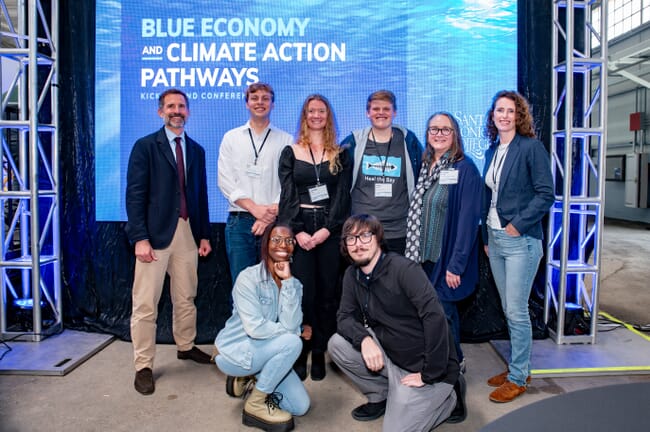
Leading figures from 13 Californian colleges and institutes gathered for the inaugural Blue Economy and Climate Action Pathways (BECAP) conference on 19 April 2024, aiming to support the blue economy workforce in Los Angeles.
“The BECAP project is a leading example of how we can build community resilience to these transformations by providing pathways to good jobs in areas of aquaculture, offshore energy, and clean coastal transport and logistics,” said California Community Colleges Chancellor Dr. Sonya Christian, in a press release from the event organisers.
“Our strategic plan, Vision 2030, calls for our California community colleges to play a key role in providing equitable educational and workforce development opportunities that respond to the real-time demands of climate change. Together, we’re building a better future for students while championing the preservation of our climate and planet for generations to come,” Christian explained.
BECAP directly aligns academia with industry, aiming to create a timely and meaningful impact. The project aims to meet the emerging employment demands in ocean-related labour markets that are aligned with climate action and environmental justice priorities.
By 2030, the blue economy is projected to more than double its contribution to gross value added, reaching over $3 trillion. According to reports from the Los Angeles County Economic Development Corporation, ocean-related industries, such as aquaculture, directly employ over 100,000 workers and generate over $13 billion in regional output.
Through a $1.1 million grant from Los Angeles Regional Consortium, the BECAP project aims to close the workforce gap with curriculum and new programme development, faculty and professional development, and the generation of a BECAP college to career pathway. Career training and education opportunities include regenerative aquaculture, ocean renewable energy and clean air, and ecosystems conservation and restoration.
“Santa Monica College’s new aquaculture certificate has been developed to meet a local workforce need, help move the needle in combating climate change, and impact the lives of our students by providing them the means to transform their future. It is a true win-win - for California community college students, the blue economy, Los Angeles, and for the planet,” said Santa Monica College superintendent Dr Kathryn Jeffery.




